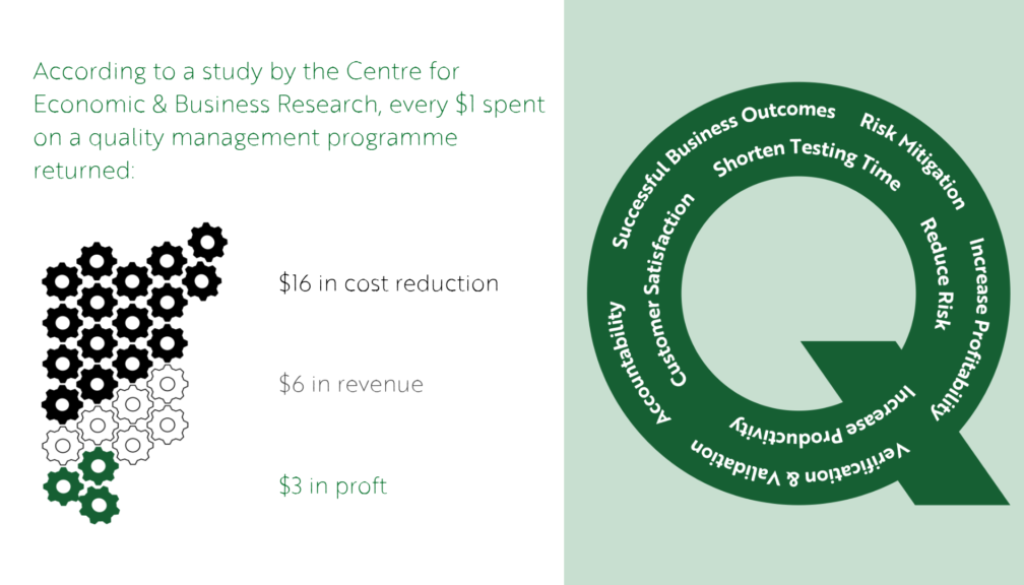In September 2013, I dropped my 3 boys off to their first day at school. It was a highly anticipated moment. 8 weeks later I began my role with CelticQA solutions. I was originally hired for my HR knowledge but as a start-up company there was much to be done and few hands to do it. We all rolled up our sleeves and got comfortable with being uncomfortable. Today, I am responsible for ensuring our clients and employees are making the right progress.
Coming from a manufacturing background, I had a full understanding of the importance of Quality Assurance in the success and growth of Coca Cola. Established in 1892 it is safe to say it has stood the test of time. I believe the role of Quality Assurance within a company is vital to the organization’s growth. QA provides feedback for future possibilities.
I have had many conversations with CIO’s, CTO’s, Founders, Delivery Managers and Change Managers over the past five years. They will all agree that Quality Assurance is usually low down on their priorities. Founders will focus all their resources on building a viable product and their attention only turns to QA when their investors are getting ready for the 2nd funding round. CIO’s/CTO’s have the responsibility of delivering numerous IT initiatives to the business. They often highlight the challenge of communicating how well IT investments have met business goals. Delivery managers will speak about the pace of change of projects and the complexity and frustration of goal posts continuously changing. The development team needs to meet the expectations of everyone in a short time frame with limited resources and often poorly documented requirements. The QA team are often the last to get invited to the party.
My view of the world with my manufacturing background tells me that QA needs to move position within the software project life cycle. I have been part of an experienced how QA can build a culture of excellence where everyone has a responsibility for Quality. Everyone knows their actions and behaviors have an impact on the end product. They own this responsibility. QA delivers numerous benefits to the business. These include cost savings, higher quality products, more collaboration across business/IT teams, increase the capacity to launch new products, the growth of revenues and an energetic and vibrant workplace where all staff are valued.
QA needs to be integrated into to each stage of the software project life cycle to give us feedback on how effective each stage is. Companies on average spend 3. 8% of revenue on strategic IT initiatives per annum. Having the right QA processes, practices and people will ensure you are delivering quality software products that meet the needs and standards of your clients in a profitable manner to promote growth.
At CelticQA solutions, we design integrated QA solutions that serve our clients business goals. We have served the US business community for over 15 years and the Irish and UK community for 5 years. We ensure our partners have the right QA framework in place throughout the software project life cycle to provide feedback for future possibilities. I believe there is a lot we can learn from manufacturing’s view of QA and its role in delivering growth. “It’s the real thing”!
– Written by Nicole Carey, Managing Director

